UPDATES TO THE MASSACHUSETTS STATE SANITARY CODE
Effective April 1, 2023, the Massachusetts State Sanitary Code will include several new updates and clarifications affecting residential property owners. While there are many clarifications, updates, and changes, the following highlights a few that are likely to impact all property owners and managers:
1. Mold: Under the existing State Sanitary Code (the “Code”), a landlord is required to ensure that an apartment does not have “chronic dampness”. The existence of “mold” was not, in and of itself, a violation of the Code. The new Code now specifically authorizes health inspectors to inspect for the existence of “excess moisture or appearance of mold” and confirms that all apartments must be free of “excess moisture”. This new provision also confirms that environmental testing is not required and that even if such testing is done, it is not the sole basis to determine the existence of excess moisture or the appearance of mold. The new Code requires that a Landlord begin drying an apartment within 48 hours of becoming aware of a flood or leak.
This new provision does create the potential that inspectors may assert the existence of mold in an apartment even without necessary testing. However, Massachusetts case law has been clear that in order to identify a substance as mold scientific testing is required, and a visual observation is insufficient. This new provision appears to suggest that, without such testing, an inspector will be able to cite a Landlord for the presence of mold. Whether courts will accept such a citation as evidence of mold remains to be seen.
However, the Landlord’s duty to immediately address leaks and evidence of excess moisture is clear and landlord’s should continue to immediately address the source of any such leak and remove and replace any damaged surfaces. Landlords should also ensure that they commence drying any water damage within the required 48 hours. It is good practice to make sure that you are documenting the date and time that you first became aware of a flood or leak, steps taken to dry, and when the work order was closed out.
2. Pest inspections: The new Code requires a landlord to conduct an inspection of each unit prior to a new occupancy to identify the presence of pests. The inspection must be documented, and such documentation must be made available upon request by the governing Board of Health.
3. Heating Season: The timeframe for the heating season has been shortened slightly under the new Code, which still begins on September 15th but now runs thru May 31st of each year (instead of June 15th). The Board of Health can also alter these dates based on weather forecasts.
4. Landlord Contact: The Code now requires that the telephone number of the owner or property manager must be monitored at least once every 12 hours, including weekends and holidays. Answering services and/or maintenance lines that are monitored satisfy this requirement so long as they have the proper contact information to reach a staff member.
5. Time to Correct Violations: Landlords are required under the new Code to make a good faith effort to correct, within 24 hours, any condition that may endanger or materially impair the health, or safety and well-being of a person or persons occupying the premises. All violations must also now be repaired within 30 days. It is good practice to make sure that you are documenting the date, time and how you first became aware of the deficiency as well as the steps taken to correct the deficiency. Work orders should reflect accurate open and closed dates and times. Any reasons for which the work cannot be completed within the prescribed timeframe should also be documented.
Documentation will continue to be key in code enforcement cases where the new Code requirements call for action within prescribed time limits. We hope the foregoing provides owners and managers with additional information to address these issues. Please feel free to contact our office with any questions.
Jeffrey C. Turk, Esq. Caitlin P. Milone, Esq.
